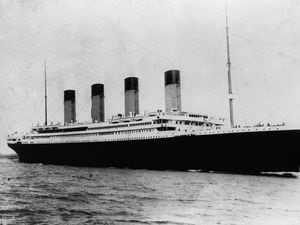Star comment: NHS must adapt to get waiting lists down
We need the Department for Health to deliver.

The financial crash of 2008 had long-lasting effects that were felt for a decade. Covid, lest we forget, has been of far greater significance.
It is no surprise, therefore, that there is further evidence of its far-reaching effects as the NHS battles to get waiting lists down.
Millions are waiting in pain for procedures. In one extreme case the wait is six years. The true extent of the issue isn’t known because only half of trusts responded to a survey. Most in the West Midlands did not respond with information.
What is clear, however, is that the situation is in crisis. We need the Department for Health to deliver as it tackles the waiting lists and makes things more manageable.
Waiting lists that were brought under control just a few years ago are now spiralling out of control. Money must be given to trusts as well as the support to bring the backlog down.
The nation doesn’t need slogans, boosterism or empty promises. It needs hard cash, political will and resolve to provide the level of service that our taxes ought to fund.
We live in challenging times and Covid showed us how we should adapt. Tackling the new crisis is similar and innovative methods should be adopted, such as Nightingale units, more day release operations and work to free up hospital beds that are needed to recovering patients. It is a process that will take years to tackle, but we can and should expect to see some improvement in the coming months.
We must not kid ourselves that the problems will go away or that they’ll solve themselves without intervention. Strategic thinking, investment and considerable determination are needed right now.
Tesco has warned that its bumper profits this time around may be hit by inflationary pressures. That means prices in the shops are likely to go up for shoppers already feeling the pressure. We should be thankful that the supermarket landscape in the UK is as competitive as it ever has been. The likes of Iceland, with its 1p veg, and Aldi and Lidl are aggressive in competing on price. That means stores will put up with reduced profits as long as they can attract shoppers in with reasonable prices.
A huge swathe of the population can simply not afford high prices for food stuffs, given the rise cost of living, absurdly high energy prices and fuel prices that continue to rise.
People need all the help they can get and our supermarkets are competing in a manner that provides affordability for those who need it most. We should be able to feed ourselves without relying on food banks.





